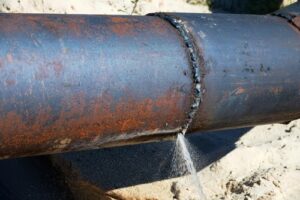
U.S. Rep. Mike Kelly (R-PA-16) on March 7 signed on as an original cosponsor of bipartisan legislation that would help more communities across the country finance the removal of lead water lines on private property.
“Access to clean, affordable drinking water is essential,” Rep. Kelly said. “Unfortunately, clean water is out of reach for millions of American households due to aging infrastructure and costly red tape.”
The Financing Lead Out of Water (FLOW) Act, H.R. 1407, which is sponsored by U.S. Rep. Dan Kildee (D-MI), would allow bonds issued by public water utilities to finance the replacement of private lead service lines to bypass the U.S. Internal Revenue Service’s (IRS) “private business use test.”
Current law dictates that if a water utility issues bonds to finance the replacement of lead service lines buried on private property, the utility must prove the bond proceeds won’t mainly benefit private businesses, according to a bill summary provided by the lawmakers.
Providing such documentation to the IRS requires a lengthy, costly analysis that ends up delaying the projects. If enacted, H.R. 1407 would remove this barrier to streamline the process in the tax code, the summary says.
“By cutting expensive federal red tape and removing financial barriers, the FLOW Act will help ensure more U.S. communities can afford to remove lead pipes so that more American families have clean drinking water when they turn on their faucets, whether in rural Alaska or on Mainstreet Pennsylvania,” said Rep. Kelly.
H.R. 1407 is supported by the Association of Metropolitan Water Agencies, the American Water Works Association, the Government Finance Officers Association, the U.S. Water Alliance, the Children’s Environmental Health Network, the National Rural Water Association, the National League of Cities, and the National Association of Counties.
“We need to get serious about removing lead from our drinking water,” said Rep. Kildee. “My new bipartisan legislation cuts through federal red tape to make it easier for communities to support water infrastructure projects, remove lead pipes and ensure their residents have access to clean drinking water.”



